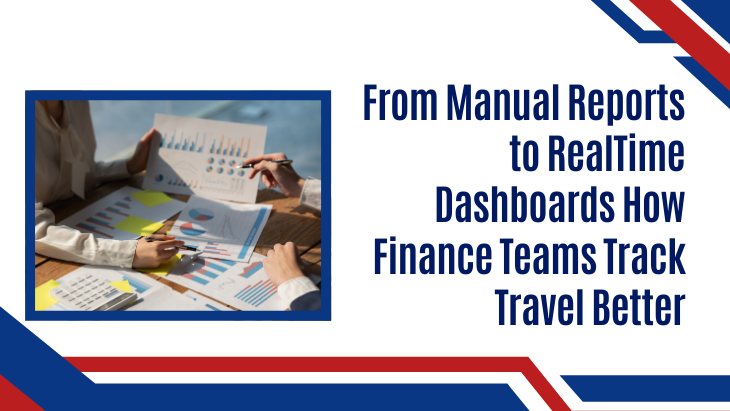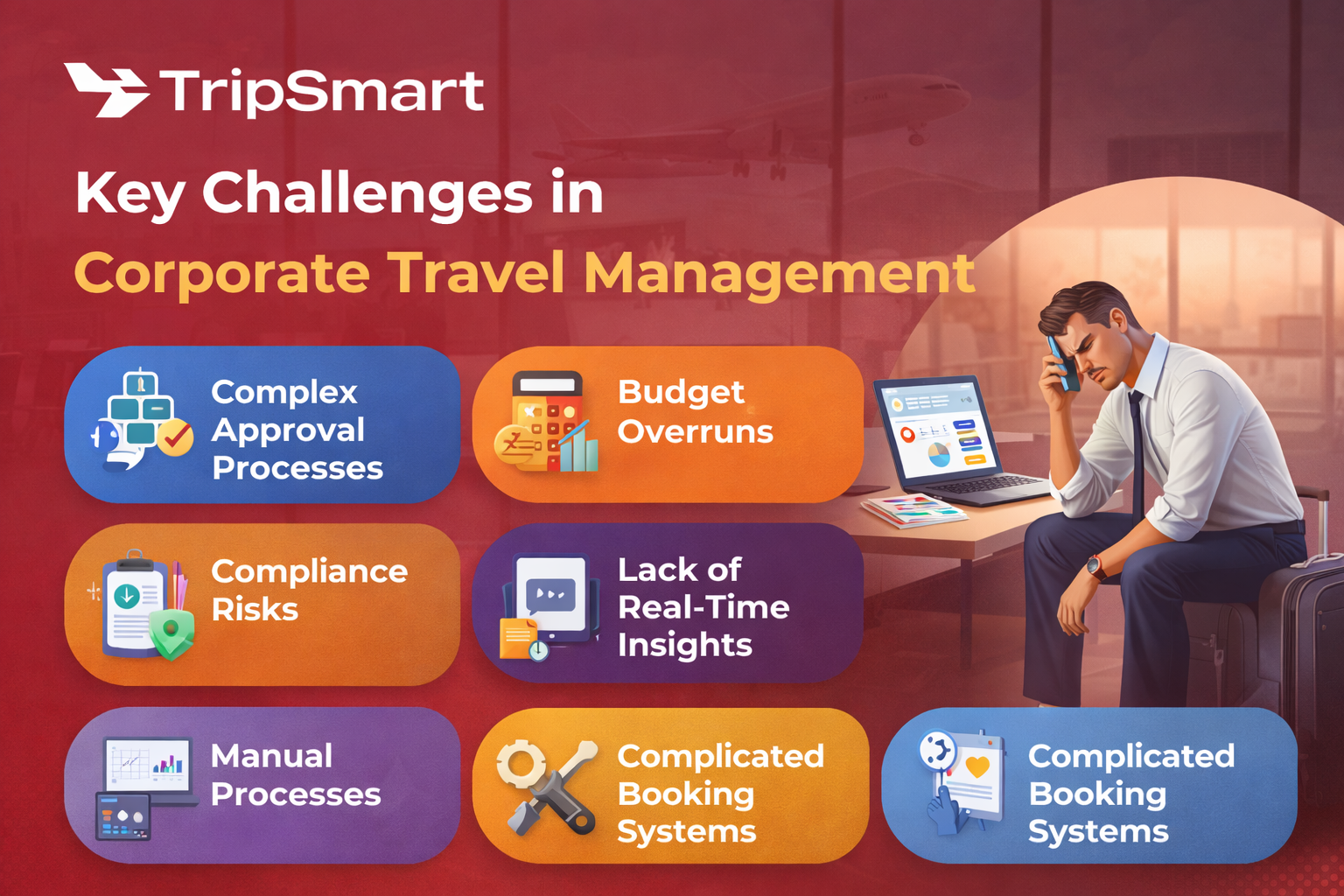Accurately and quickly tracking business travel expenses is not only convenient but also essential for competitiveness in today's fast-paced corporate environment. AI-Powered Business Travel & Expense Management Intelligent systems that provide real-time visibility and control are replacing the outdated methods of manual reconciliation, Excel spreadsheets, and paper receipts. Finance teams are changing from producing reactive reports to making proactive decisions as a result of the growth of AI-powered business travel and expense management. The shift from manual reporting to real-time dashboards is completely transforming how businesses control expenses, maintain compliance, and increase productivity.
Manual Travel Reports' Legacy Burden
The task of collecting travel data from various departments, expense categories, and employees has been a challenge for finance departments for decades. The procedure was labour-intensive, slow, and prone to mistakes. Approvals could take weeks, reports had to be manually prepared, and receipts had to be scanned. More importantly, until it was too late, finance leaders were unable to identify patterns in travel behaviour, policy infractions, or excessive spending. By the time a monthly or quarterly report reached the CFO's desk, it might have already exceeded the budget. Departmental frustration, audit delays, and inconsistent compliance resulted from this reactive strategy.
Introducing Real-Time Dashboards: A New Era in Financial Monitoring
Real-time dashboards have completely transformed the way finance teams work. These online resources provide real-time, dynamic visibility into travel and spending information. Finance professionals now have a single, real-time interface to view reservations for flights, hotels, mileage claims, and meals. Teams can monitor trends, anomalies, and compliance metrics instantly rather than waiting for a monthly expense report. Finance departments can identify overspending, make quick corrections, and efficiently reallocate budgets thanks to this immediate access. Real-time dashboards become the hub for financial control when business travel and expense management are powered by AI.
Intelligent Expense Monitoring Is Driven by AI
Artificial intelligence is at the heart of this change. In addition to processing enormous amounts of travel data, AI can identify patterns that humans would miss. It is able to identify duplicate submissions, fraudulent claims, and abnormally high spending in particular categories. For instance, the system can instantly identify if an employee routinely spends 40% more on lodging than their coworkers in the same city. Additionally, AI makes sure that company policies are automatically applied, rejecting expenses that are not covered by the policy or notifying approvers when thresholds are surpassed. These automated insights promote an accountable culture, cut down on errors, and save time.
Improved Adherence to and Implementation of Policies
Ensuring compliance across departments and geographies was one of the biggest problems with traditional travel reporting. Misinterpretation or improper implementation of policies led to inconsistencies, making audits a daunting task. AI-powered dashboards that operate in real-time make policy enforcement automatic. The system instantly compares employee-submitted expenses to pre-established travel policies. Before being processed, non-compliant entries may be rejected, queried, or flagged. In addition to making audits easier, the system guarantees that businesses continue to abide by internal policies, external regulations, and tax laws.
Providing Strategic Insight to CFOs
For CFOs, travel is an investment in team performance, client relationships, and growth rather than just a cost. AI-powered, real-time travel dashboards give CFOs the clarity they need to maximise spending and make wise choices. They receive real-time insights into travel ROI, spend by project or team, vendor performance, and projected expenses in place of static, retrospective reports. Finance executives can better plan for seasonal travel trends, renegotiate vendor contracts, and match travel budgets with overarching business objectives thanks to this strategic oversight. Finance teams can now lead rather than just report thanks to AI, which turns raw data into actionable intelligence.
Automating Reimbursements and Approvals
The lengthy approval and reimbursement processes for expenses are another issue that AI-powered solutions address. Under the manual model, an employee may have to wait days or weeks for the approval, reimbursement, or correction of their expenses. In addition to decreasing employee satisfaction, this delay makes cash flow forecasting more difficult. Contemporary AI-driven platforms enable faster validation, quicker reimbursements, and automated approval routing. The system can elevate exceptions, flag incomplete submissions, and automatically approve small claims without human assistance. This results in less work, more accuracy, and happier employees for finance teams.
Smooth System Integration
The capacity to interface with other enterprise systems is where AI-powered business travel and expense management really shine. Travel dashboards are no longer stand-alone tools; they now easily integrate with payroll, accounting platforms, HR systems, and ERP software. Data flows without delay or duplication thanks to this integration. For instance, once approved in the travel management system, the financial forecast instantly reflects the trip's budget impact. Payroll automatically updates when an expense is reimbursed. Finance now has a single view of travel expenditures for the entire company thanks to these integrations, which break down organisational silos.
Cutting Fraud and Boosting openness.
For many organisations, false or exaggerated expense claims are serious concerns. Manual systems easily overlooked such claims. AI-powered real-time dashboards record, monitor, and check every transaction against established spending trends. When workers are aware that the system is capable of identifying false claims, they are less likely to make them. Additionally, it offers a transparent audit trail for future use, which facilitates and expedites external audits.
Conclusion
The switch from manual travel reports to real-time dashboards is a strategic advantage rather than merely a technical one. With AI-powered business travel and expense management, finance teams can now monitor, control, and optimise spending like never before. TripSmart Real-time dashboards give businesses the insight they need to succeed in a fast-paced world by offering a clear, intelligent, and dynamic window into business travel. The future of corporate travel finance appears to be brighter, faster, and more transparent than ever before as more companies implement these systems.





Leave a reply